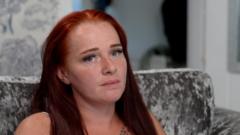Is Bruce Willis in Great Health Despite His Brain Decline? Emma Weighs In

Published: 2025-08-26 17:54:11 | Category: technology
Emma Heming Willis recently opened up about her husband Bruce Willis's battle with frontotemporal dementia, revealing how the condition affects his language and communication. Despite his diagnosis, she emphasised his overall good health and mobility, highlighting the importance of adapting to their new reality as a family. This article explores the implications of frontotemporal dementia, the couple's journey, and how Heming Willis aims to support others in similar situations.
Last updated: 02 October 2023 (BST)
Understanding Frontotemporal Dementia
Frontotemporal dementia (FTD) is a type of dementia that primarily affects the frontal and temporal lobes of the brain, which are critical for behaviour, personality, and language. Unlike Alzheimer's disease, which is more common and primarily impacts memory, FTD can lead to significant changes in personality and social behaviour, as well as language difficulties.
- FTD is uncommon but increasingly recognised.
- Symptoms often include language impairment and behavioural changes.
- There are various subtypes of FTD, each affecting individuals differently.
- Support for caregivers is crucial in managing the condition.
- Understanding FTD can help in providing better care and communication strategies.
Bruce Willis's Journey with Dementia
Bruce Willis, known for iconic roles in films such as "Die Hard," was diagnosed with frontotemporal dementia in early 2023. This diagnosis followed a gradual decline in his cognitive abilities, which his family and fans have observed over the years. Emma Heming Willis has been vocal about the challenges they face as a family navigating this new reality.
Impacts on Communication
As Emma noted, Bruce's ability to communicate has been significantly affected. "The language is going," she stated, which reflects how FTD can impair both expressive and receptive language capabilities. Adaptation has been key for the family. They have developed unique ways to communicate effectively, often relying on non-verbal cues and shared experiences rather than traditional conversation.
Emma's Role as a Caregiver
Emma has shared her experiences as a caregiver, highlighting the emotional toll it can take. Initially, she felt overwhelmed and isolated, believing she had to manage everything on her own. This led to sleepless nights and a withdrawal from social engagements. However, she has since recognised the importance of seeking support and connecting with others in similar situations.
The Importance of Support for Caregivers
Caregiving for a loved one with dementia can be daunting and often leads to feelings of loneliness and frustration. Emma's forthcoming book, "Unexpected Journey: Finding Strength, Hope, and Yourself on the Caregiving Path," aims to provide guidance and encouragement for others in similar roles. It reflects her journey and the lessons learned along the way.
What to Expect in the Book
Emma's book will delve into various aspects of caregiving, including:
- Practical advice on managing day-to-day tasks.
- Emotional support strategies for caregivers.
- Understanding the condition and its progression.
- Tips for maintaining one’s own well-being while caring for others.
Moments of Connection
Despite the challenges posed by Bruce's condition, Emma shared that there are still moments of connection. "We get moments," she said, referring to times when Bruce's true personality shines through. These instances are often fleeting but provide comfort and joy amidst the difficulties of caregiving.
The Role of Family
The couple's family dynamics have also played a role in their journey. Bruce has five daughters, including two with Emma and three from his previous marriage to actress Demi Moore. The family remains united in supporting Bruce, cherishing those rare moments when his laughter and spark return, even if just for a brief time.
Emma & Bruce Willis: The Unexpected Journey
Emma's recent interview coincides with the ABC special "Emma & Bruce Willis: The Unexpected Journey," which aims to shed light on their experiences while raising awareness about frontotemporal dementia. The special is set to air at 20:00 BST and will be available for streaming on Disney+ and Hulu the following day.
Why This Matters
Public discussions about dementia, particularly frontotemporal dementia, are vital for raising awareness and understanding of the condition. As more high-profile figures like Bruce Willis share their experiences, it helps destigmatise the conversation surrounding dementia and encourages others to seek help and support.
What Happens Next?
As the effects of frontotemporal dementia continue to evolve, the Willis family will likely face new challenges and experiences. Emma’s proactive approach in sharing their story may inspire others to find strength in their caregiving roles and foster a community of support for those affected by dementia.
Call to Action
As we reflect on the journey of Bruce Willis and Emma Heming Willis, it’s essential to consider the broader implications of dementia on families. How can we better support caregivers and those affected by such conditions? Awareness, education, and open conversations are crucial. Together, we can make a difference in the lives of those navigating similar paths. #DementiaAwareness #CaregiverSupport #BruceWillis
FAQs
What is frontotemporal dementia?
Frontotemporal dementia is a rare type of dementia affecting the frontal and temporal lobes of the brain, leading to changes in behaviour, personality, and language skills.
How is frontotemporal dementia diagnosed?
Diagnosis typically involves a combination of medical history, neurological examinations, cognitive tests, and brain imaging to assess changes in brain structure and function.
What are the symptoms of frontotemporal dementia?
Symptoms can include difficulty with language, personality changes, mood swings, and impaired social interactions, often varying significantly from person to person.
What can caregivers do to support someone with frontotemporal dementia?
Caregivers can employ communication strategies, establish routines, seek support from community resources, and ensure their own well-being to better manage the caregiving process.
How can I learn more about supporting those with dementia?
Numerous resources are available, including books, support groups, and online platforms, offering guidance and community support for caregivers and families affected by dementia.



